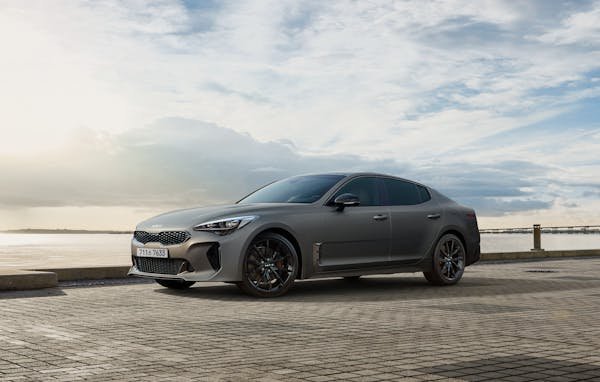When it comes to buying a compact, fuel-efficient car, reliability is a top concern for most drivers. A reliable hatchback doesn’t just get you from A to B—it does so consistently, safely, and with minimal maintenance costs over time. If you’re looking for the most reliable hatchback, you’re not alone. This car category is highly popular among urban drivers, students, and small families due to its versatility and cost-efficiency.
In this article, we’ll explore the top hatchback models known for their long-term reliability, key features to look for, and tips for making the right choice.
What Makes a Hatchback Reliable?
A reliable hatchback is one that performs well over the years with minimal breakdowns or major repairs. Reliability comes down to build quality, tested engineering, and a proven track record of performance over time.
Key Factors That Contribute to Reliability:
- Low repair frequency and maintenance costs
- Durable engine and transmission
- Positive owner reviews and high customer satisfaction
- Strong safety ratings and technology support
- Manufacturer’s warranty and service network
Reliable hatchbacks offer peace of mind for daily commutes, long trips, or first-time car buyers.
Top 6 Most Reliable Hatchback Cars in 2025
Here’s a breakdown of the best hatchbacks that consistently earn high marks for dependability:
1. Toyota Corolla Hatchback
- Engine: 2.0L 4-cylinder
- Fuel Efficiency: ~32–41 mpg
- Highlight: Excellent build quality, proven Toyota durability
With its sturdy reputation, the Corolla Hatchback is a low-maintenance vehicle that’s perfect for both urban and highway driving.
2. Honda Civic Hatchback
- Engine: 1.5L turbocharged 4-cylinder
- Fuel Efficiency: ~31–39 mpg
- Highlight: Smooth ride, high resale value, and advanced safety tech
Honda Civics are legendary for longevity and performance, making them a top pick among practical car buyers.
3. Mazda3 Hatchback
- Engine: 2.5L 4-cylinder
- Fuel Efficiency: ~27–36 mpg
- Highlight: Premium interior feel, agile handling, and high reliability scores
The Mazda3 combines luxury and practicality in one fun-to-drive package.
4. Hyundai i20 (International Market)
- Engine: 1.2L or 1.0L turbo petrol
- Fuel Efficiency: ~20–25 km/l
- Highlight: Affordable, stylish, and dependable in emerging markets
Hyundai has improved its reliability image greatly in the last decade, and the i20 is a shining example.
5. Volkswagen Golf
- Engine: 1.4L turbocharged or 2.0L GTI engine
- Fuel Efficiency: ~29–38 mpg
- Highlight: German engineering, strong safety scores
Despite being a little more expensive, the Golf is robust and comfortable for long-term use.
6. Suzuki Swift
- Engine: 1.2L petrol (hybrid in some markets)
- Fuel Efficiency: ~22–24 km/l
- Highlight: Great for city driving, reliable, and low maintenance costs
The Swift is a global favorite due to its small size and excellent value.
Why Choose a Hatchback?
Aside from reliability, hatchbacks offer several advantages over sedans or SUVs:
✅ Better Fuel Economy
Hatchbacks are light and efficient, making them cheaper to run.
✅ Easy Maneuverability
Perfect for tight city roads and parking in congested areas.
✅ Versatile Cargo Space
Foldable rear seats provide room for everything from groceries to sports gear.
✅ Lower Maintenance Costs
Smaller engines and fewer parts reduce repair bills and service frequency.
How to Determine a Hatchback’s Reliability
While looking for the most reliable hatchback, you should consider a few research-based methods:
✔ Read Consumer Reports & Reliability Ratings
Organizations like J.D. Power and Consumer Reports conduct surveys to assess vehicle dependability.
✔ Check Owner Reviews
Forums and websites like Edmunds or CarDekho (India) offer real-world feedback.
✔ Research Manufacturer Warranties
A strong warranty (5+ years) indicates confidence in product reliability.
✔ Look at Repair & Service Costs
Check average repair frequency and costs using tools like RepairPal or CarEdge.
Tips for Buying a Reliable Hatchback
Here are some practical tips to make sure you choose the best:
1. Prioritize Proven Brands
Stick with carmakers known for reliability—Toyota, Honda, Mazda, Hyundai, and Suzuki.
2. Buy New or Certified Pre-Owned
New cars offer better warranty coverage, while certified pre-owned vehicles undergo strict inspections.
3. Request Full Service History (For Used Cars)
Avoid vehicles with irregular maintenance or gaps in history.
4. Opt for Simpler Trims
Basic trims with fewer electronic gadgets often mean fewer repair issues.
5. Test Drive Before Buying
Ensure comfort, handling, and visibility meet your expectations.
Most Reliable Hatchbacks for Students and Young Drivers
If you’re looking for a budget-friendly and dependable car for a young driver, consider:
- Toyota Yaris: Easy to drive and economical
- Hyundai i10 or Grand i10: Compact, reliable, and affordable
- Ford Fiesta (used): Good mix of performance and practicality
- Suzuki Baleno: Popular in India with great mileage and after-sales support
These models are perfect for college students, first-time buyers, or anyone on a budget.
Maintenance Tips to Keep Your Hatchback Reliable
Even the most reliable car can run into trouble without regular care. Here’s how to extend your car’s life:
- Follow the manufacturer’s maintenance schedule
- Regularly check engine oil, brakes, and coolant
- Keep tires inflated and rotated
- Clean and service the air filter and battery
- Don’t ignore small warning signs—fix them early
A well-maintained hatchback can easily cross 150,000–200,000 km (or 100,000+ miles) with minimal issues.
Final Thoughts: Choose the Most Reliable Hatchback for Long-Term Value
Choosing the most reliable hatchback gives you more than just a good ride—it gives you years of stress-free driving, predictable costs, and excellent resale value. From Japanese icons like the Corolla and Civic to versatile models like the Mazda3 and Swift, there’s a dependable hatchback for every budget and lifestyle.
Before buying, do your homework, take a test drive, and prioritize long-term quality over flashy extras. In the world of compact cars, reliability isn’t just an advantage—it’s a must.







